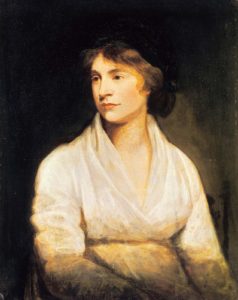
Wollstonecraft’s primary claim was that the Enlightenment’s optimistic view of human nature, and the assumption that it was guided by reason, should apply to all human beings, male and female. Yet, though gender was crucial to her work, her arguments were actually rooted in liberal philosophy. Her most important publication, A Vindication of the Rights of Woman (1792), remains a classic of political thought and is still strongly linked to feminist ideology. While John Locke laid the foundations of liberal thought in the seventeenth century, one of those who developed classical liberal ideas in the eighteenth century was Mary Wollstonecraft. Wollstonecraft wrote A Vindication of the Rights of Woman (1792), arguing that legal and formal rights should apply to both men and women rather than just to men as women were clearly rational individuals, just like men. Wollstonecraft was writing at a time when women were effectively the property of either their father or their husband and had no independent legal status.

Mary Wollstonecraft studied the liberal ideas of rights, liberty and reason inspired by the Enlightenment and the French Revolution and asked, logically, why women did not have any of these rights and why these new ideas were seen as being for men only.


 0 kommentar(er)
0 kommentar(er)
